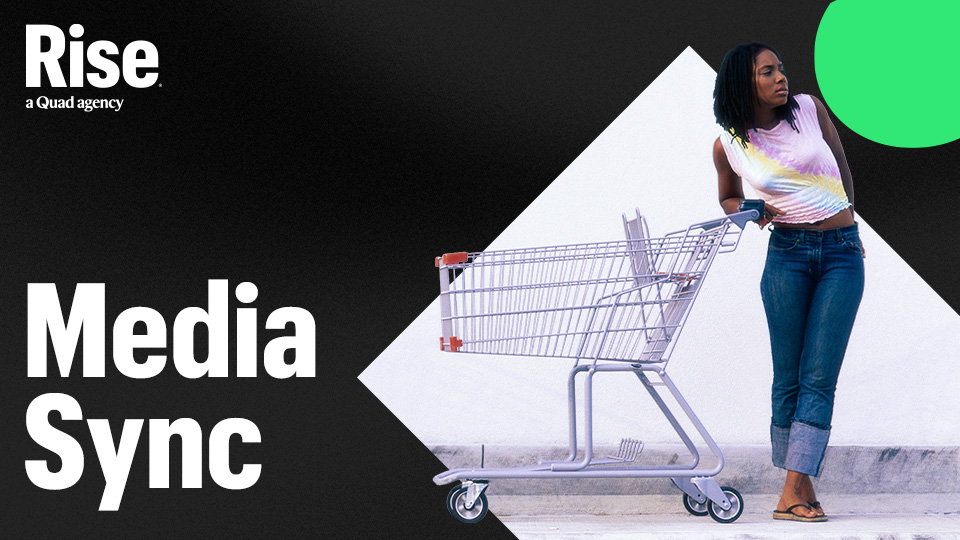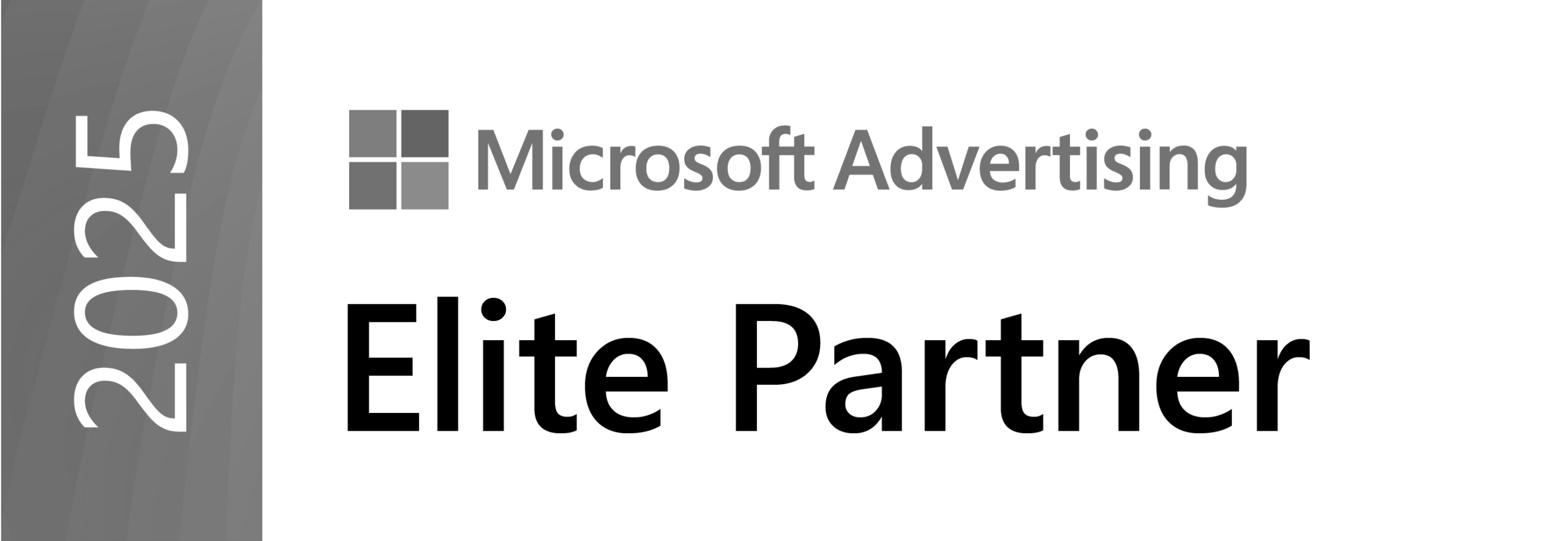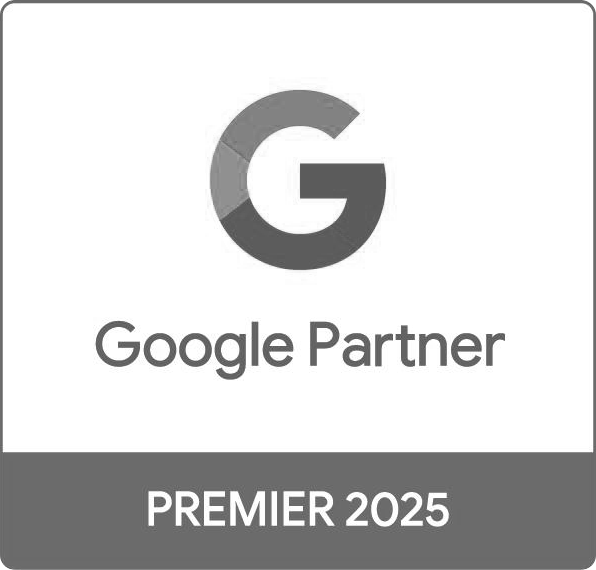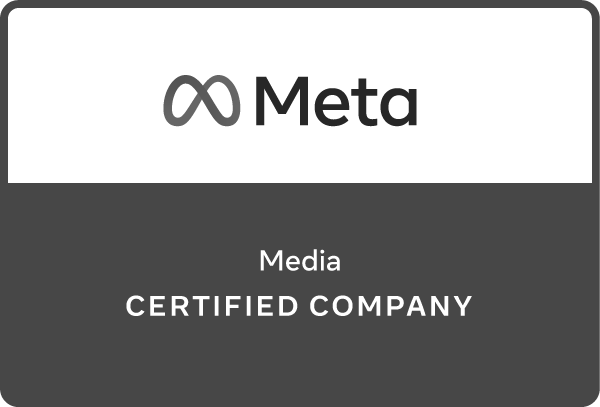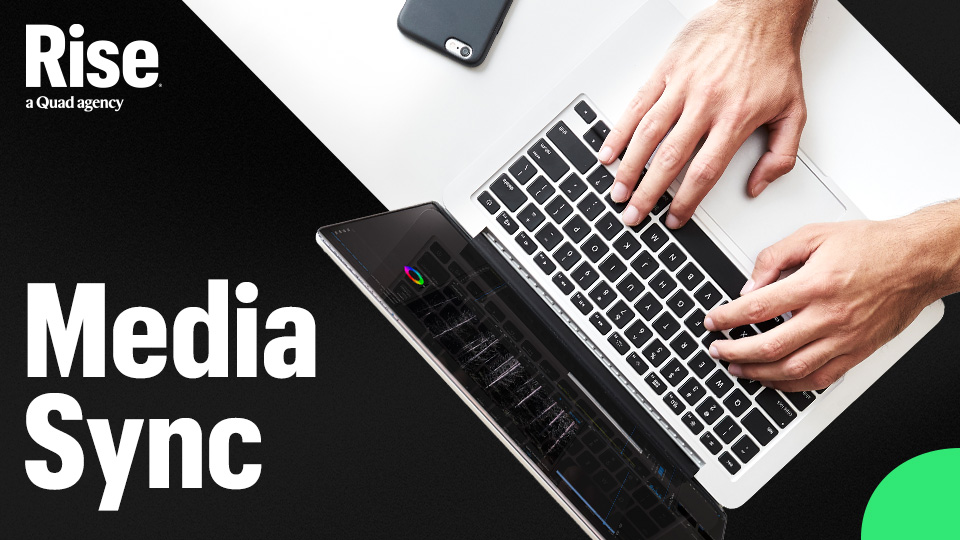
Rise Media Sync summarizes media and platform news of interest to marketers. Here are five key developments the Rise team is monitoring:
1. Meta adds brand safety tools for AI-generated ad copy
What’s happening: Meta has launched new controls allowing advertisers to restrict specific terms and phrases from appearing in AI-generated ad text across Instagram and Facebook.
What we know:
- Advertisers can now specify visual parameters and block certain words from appearing in AI-generated ad copy through Meta’s Advantage+ creative tools.
- The controls are available within Meta’s existing ad creation workflow and integrate with current brand safety measures.
- Meta says that, during early testing, AI-generated ads have shown improved performance metrics compared to manually created content.
Early indications and perspective: This feature represents Meta’s response to advertiser demand for greater control over automated creative processes. As AI-generated content becomes more prevalent, brands need safeguards to prevent messaging that conflicts with their values or regulatory requirements. The ability to restrict terms while maintaining AI efficiency could accelerate adoption of automated creative tools among risk-averse advertisers. When managing multiple clients, these controls could become essential for maintaining brand consistency at scale while leveraging AI’s performance advantages.
2. Apple reportedly developing AI-powered search engine
What’s happening: Apple is building an AI-based search engine that’s slated to launch in 2026 and integrate with the company’s existing services, such as Siri, according to Bloomberg.
What we know:
- The search engine is expected to use large-language models (LLMs) to provide multimodal responses that combine text, images and video.
- This development would better position Apple’s iOS and Siri to compete with search offerings from OpenAI and Perplexity AI.
- Apple is currently evaluating an AI model developed in partnership with Google, per Bloomberg.
Early indications and perspective: Apple’s entry into AI-powered search could have major implications for the search landscape. While it’s unclear how Apple’s privacy-focused approach would impact the visibility of key metrics, integration with Siri (and potentially Safari) could create unique opportunities within Apple’s ecosystem, particularly for brands trying to reach premium consumer segments.
3. X courts holiday marketers with dedicated hub
What’s happening: X has debuted a seasonal campaign resource center that includes strategy consultations, a webinar series and explainers for its AI-powered tools.
What we know:
- The hub heavily promotes Grok AI, which X says can enhance audience targeting and optimize campaigns.
- Strategically, the platform is emphasizing the value of video content and multiple ad formats to improve campaign performance during peak shopping seasons.
- Analytics tools allow advertisers to track engagement and optimize campaigns in real-time throughout the holiday period.
Early indications and perspective: X’s holiday marketing push signals its attempt to stabilize advertiser relationships and demonstrate platform value during the industry’s most critical revenue period. AI targeting tools position X to compete with other platforms. Brands testing X for holiday campaigns may find opportunities for cost-effective reach, especially if the platform’s audience engagement remains strong. Still, advertisers should carefully monitor performance metrics and brand safety controls given the fast-changing nature of the platform.
4. Judge hands down ruling in landmark Google antitrust case
What’s happening: A U.S. federal judge has ruled that Google must share some of its search index data with competitors and end exclusive contracts, but it will not be forced to sell Chrome or Android.
What we know:
- Judge Amit Mehta of the U.S. District Court for the District of Columbia barred Google from entering into or maintaining exclusive contracts that make its search, browser, assistant or AI products the default option on devices.
- The judge also ruled that Google must share certain search index and user-interaction data with “qualified competitors,” though not ads data, as the Department of Justice had requested.
- Google must also disclose material changes to ad auctions to improve transparency.
Early indications and perspective: This ruling is more symbolic than structural; Google avoided the most disruptive penalties, meaning its advertising and data engines remain largely intact. Competitors may gain some access to data and distribution opportunities, but the scale is unlikely to meaningfully shift market share. For marketers, the practical impact is minimal, though heightened regulatory scrutiny could signal a more volatile landscape for big tech partnerships moving forward.
Other media/platform news we’re watching:
- “Instagram’s First Native iPad App Focuses On Reels” (MediaPost)
- “Google Ads API to switch to a monthly release cycle” (Search Engine Land)
- “YouTube Updates Community Post Sharing, Livestream Donations” (Social Media Today)
If you made it this far, here’s a fun fact: Thanks to extreme aerodynamic designs, some racecars generate downward forces that exceed gravity at high speeds — meaning that, in theory, they’re capable of driving upside-down on a ceiling.

